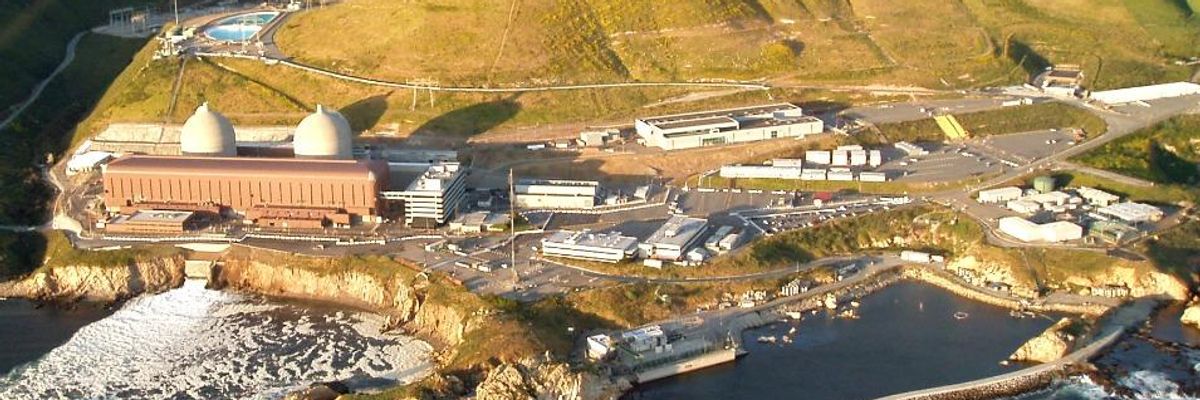In a report written last year but not made public until Monday, a former federal inspector expresses uncertainty over whether California's last operating nuclear plant, Diablo Canyon, could withstand strong shaking from nearby earthquake faults.
In a 42-page document (pdf) filed in July of 2013, Dr. Michael Peck, the Nuclear Regulatory Commission's former senior resident inspector at Diablo Canyon, calls for the plant to be shut down "pending demonstration that...safety functions can be met at the higher seismic stress levels."
Observers criticized the NRC's withholding of the report. Though Peck asked that his dissent--known as a Differing Professional Opinion, written in response to the NRC's decision to let the plant's twin reactors keep running despite the failure of both plant operator Pacific Gas & Electric Co and the NRC to conduct a rigorous safety analysis and take action to address newly identified seismic risks--be made public, the NRC has not released it; the organization Friends of the Earth posted the document on its website Monday. Also, despite the agency's requirement that Differing Professional Opinions are to be ruled on within 120 days of filing, the NRC has not ruled on Peck's opinion. Peck says he first raised concerns about the plant's safety in 2010.
"We find it completely disgraceful that the NRC hid these concerns for all these years."
--Jane Swanson, San Luis Obispo Mothers for Peace
In response to the revelations, which the Associated Press reported Monday, California's Senate Environment and Public Works Committee announced it would hold hearings into how the NRC has handled Peck's recommendation.
Diablo Canyon is located on the central California coast, near San Luis Obispo, in close proximity to faults that seismic studies show could trigger an earthquake stronger than the reactors and internal equipment were built to withstand, according to Friends of the Earth.
"Inspector Peck is the canary in the coal mine, warning us of a possible catastrophe at Diablo Canyon before it's too late," Damon Moglen, senior strategic adviser at Friends of the Earth, said in a statement. "We agree with him that Diablo Canyon is vulnerable to earthquakes and must be shut down immediately. Rather than the NRC keeping this a secret, there must be a thorough investigation with public hearings to determine whether these reactors can operate safely."
The AP reports:
The NRC, which oversees the nation's commercial nuclear power industry, and Diablo Canyon owner Pacific Gas and Electric Co., say the nearly three-decade-old reactors, which produce enough electricity for more than 3 million people annually, are safe and that the facility complies with its operating license, including earthquake safety standards.
PG&E spokesman Blair Jones said the NRC has exhaustively analyzed earthquake threats for Diablo Canyon and demonstrated that it "is seismically safe." Jones said in an email that the core issue involving earthquake ground motions was resolved in the late 1970s with seismic retrofitting of the plant.
But Peck's analysis calls specific attention to major fault lines located near the facility, including the recently discovered Shoreline fault less than 700 feet away, which could produce significant shaking during an earthquake--more than was accounted for in the design of important plant equipment. The NRC must take "new seismic information" into account, Peck says, before affirming the plant's safety.
Coming on the heels of this weekend's earthquake in northern California, the Diablo report and the circumstances of its release are particularly worrisome.
"We find it completely disgraceful that the NRC hid these concerns for all these years," Jane Swanson, spokeswoman for the anti-nuclear group San Luis Obispo Mothers for Peace, told the San Luis Obispo Tribune. On its Facebook page, the group declared: "Until PG&E can PROVE that the emergency backup systems will function in an earthquake, the facility needs to STOP OPERATING."

